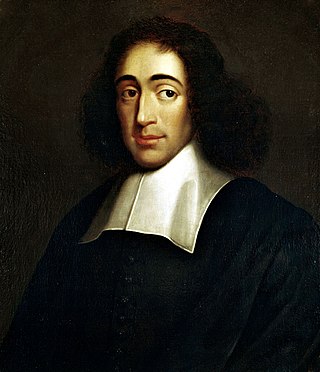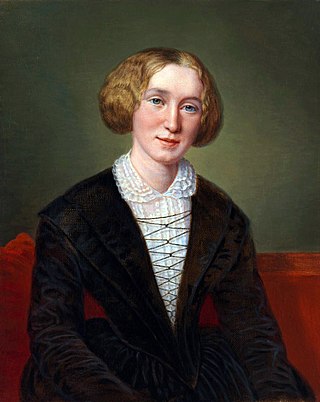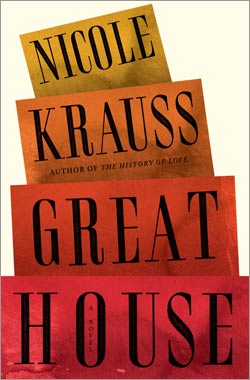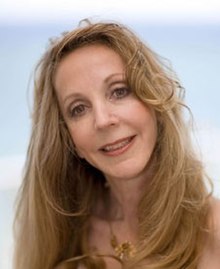
Baruch (de) Spinoza, also known under his Latinized pen name Benedictus de Spinoza, was a philosopher of Portuguese-Jewish origin. As a forerunner of the Age of Reason, Spinoza significantly influenced modern biblical criticism, 17th-century Rationalism, and contemporary conceptions of the self and the universe, establishing himself as one of the most important and radical philosophers of the early modern period. He was influenced by Stoicism, Maimonides, Niccolò Machiavelli, René Descartes, Thomas Hobbes, and a variety of heterodox Christian thinkers of his day.

Mary Ann Evans, known by her pen name George Eliot, was an English novelist, poet, journalist, translator, and one of the leading writers of the Victorian era. She wrote seven novels: Adam Bede (1859), The Mill on the Floss (1860), Silas Marner (1861), Romola (1862–1863), Felix Holt, the Radical (1866), Middlemarch (1871–1872) and Daniel Deronda (1876). As with Charles Dickens and Thomas Hardy, she emerged from provincial England; most of her works are set there. Her works are known for their realism, psychological insight, sense of place and detailed depiction of the countryside. Middlemarch was described by the novelist Virginia Woolf as "one of the few English novels written for grown-up people" and by Martin Amis and Julian Barnes as the greatest novel in the English language.

Nilanjana Sudeshna "Jhumpa" Lahiri is a British-American author known for her short stories, novels, and essays in English and, more recently, in Italian.

Zadie Smith FRSL is an English novelist, essayist, and short-story writer. Her debut novel, White Teeth (2000), immediately became a best-seller and won a number of awards. She became a tenured professor in the Creative Writing faculty of New York University in September 2010.

Patricia Smith Churchland is a Canadian-American analytic philosopher noted for her contributions to neurophilosophy and the philosophy of mind. She is UC President's Professor of Philosophy Emerita at the University of California, San Diego (UCSD), where she has taught since 1984. She has also held an adjunct professorship at the Salk Institute for Biological Studies since 1989. She is a member of the Board of Trustees Moscow Center for Consciousness Studies of Philosophy Department, Moscow State University. In 2015, she was elected a Fellow of the American Academy of Arts & Sciences. Educated at the University of British Columbia, the University of Pittsburgh, and Somerville College, Oxford, she taught philosophy at the University of Manitoba from 1969 to 1984 and is married to the philosopher Paul Churchland. Larissa MacFarquhar, writing for The New Yorker, observed of the philosophical couple that: "Their work is so similar that they are sometimes discussed, in journals and books, as one person."

James Morrow is an American novelist and short-story writer known for filtering large philosophical and theological questions through his satiric sensibility.
Cynthia Ozick is an American short story writer, novelist, and essayist.
Dame Hermione Lee, is a British biographer, literary critic and academic. She is a former President of Wolfson College, Oxford, and a former Goldsmiths' Professor of English Literature in the University of Oxford and Professorial Fellow of New College. She is a Fellow of the British Academy and of the Royal Society of Literature.

Anthony Clifford Grayling is a British philosopher and author. He was born in Northern Rhodesia and spent most of his childhood there and in Nyasaland. In 2011 he founded and became the first Master of New College of the Humanities, an independent undergraduate college in London. Until June 2011, he was Professor of Philosophy at Birkbeck, University of London, where he taught from 1991. He is also a supernumerary fellow of St Anne's College, Oxford, where he formerly taught.

Judith Jarvis Thomson was an American philosopher who studied and worked on ethics and metaphysics. Her work ranges across a variety of fields, but she is most known for her work regarding the thought experiment titled the trolley problem and her writings on abortion. She is credited with naming, developing, and initiating the extensive literature on the trolley problem first posed by Philippa Foot which has found a wide range use since. Thomson also published a paper titled "A Defense of Abortion", which makes the argument that the procedure is morally permissible even if it is assumed that a fetus is a person with a right to life. She was elected a member of the American Philosophical Society in 2019.
Edward Lewis Wallant was an American novelist who wrote The Pawnbroker (1961). It was adapted into an award-winning film of the same name, directed by Sidney Lumet and starring Rod Steiger. He also worked in the 1950s an art director at advertising firm McCann-Erickson.
Steven Mitchell Nadler is an American academic and philosopher specializing in 17th-century philosophy. He is Vilas Research Professor and the William H. Hay II Professor of Philosophy, and was Max and Frieda Weinstein-Bascom Professor of Jewish Studies at the University of Wisconsin–Madison. He is also director of their Institute for Research in the Humanities.
Heidi M. Ravven is the Bates and Benjamin Professor of Classical and Religious Studies at Hamilton College, where she has taught her specialization, Jewish Philosophy, and general Jewish Studies since 1983. She is a Fellow in Neurophilosophy of the Integrative Neurosciences Research Program, which is co-directed by Vilayanur Ramachandran and Kjell Fuxe. She has been appointed Visiting Professor of Philosophy in the School of Marxism at Northeast Normal University, Changchun, China, for 2017-20.
Anne Fleischman Bernays is an American novelist, editor, and teacher.
The Koret Jewish Book Award is an annual award that recognizes "recently published books on any aspect of Jewish life in the categories of biography/autobiography and literary studies, fiction, history and philosophy/thought published in, or translated into, English." The award was established in 1998 by the Koret Foundation, in cooperation with the National Foundation for Jewish Culture, to increase awareness of the best new Jewish books and their authors.
In 1962, the Edward Lewis Wallant Award was established at the University of Hartford, in Connecticut, USA by Fran and Irving Waltman. It is presented annually to a writer whose fiction is considered to have significance for American Jews. The award is named for Jewish American writer Edward Lewis Wallant.

Great House is the third novel by the American writer Nicole Krauss, published on October 12, 2010 by W. W. Norton & Company. Early versions of the first chapter were published in Harper's, Best American Short Stories 2008, and The New Yorker. Great House was a finalist for the 2010 National Book Award in Fiction.
Yael Goldstein Love is an American novelist, editor and book critic. She is also co-founder and editorial director of the literary studio Plympton.
Lenn Evan Goodman is an American Jewish philosopher. His philosophy, particularly his constructive work, draws from classical and medieval sources as well as religious texts. Goodman is also an academic, scholar, and a historian with research interest in metaphysics, ethics, and Jewish philosophy. He is serving as a professor of philosophy at Vanderbilt University.









